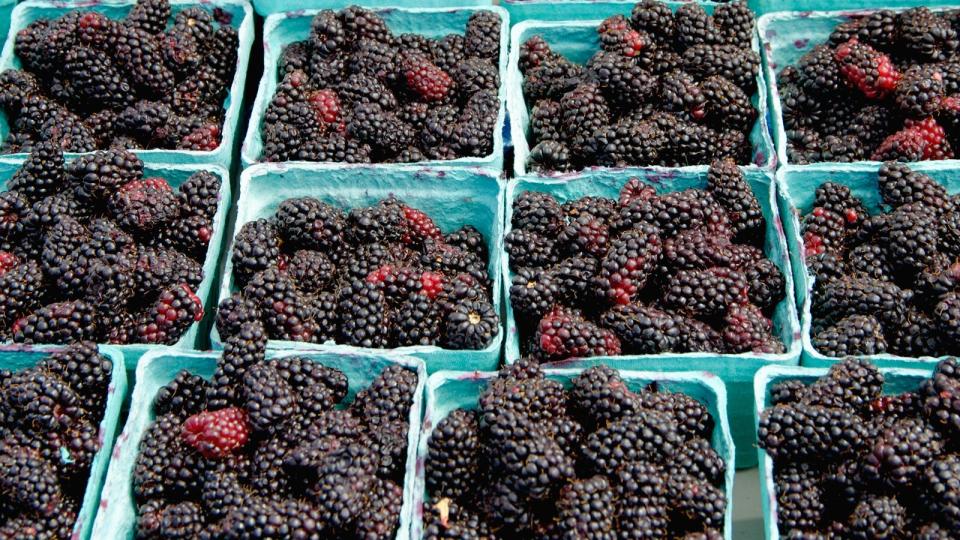The Difference Between Blackberries and Marionberries

Summertime brings a bounty of everyone's favorite family of fruit, berries. While you can get many types of berries all year round, like strawberries and blueberries, there are certain varieties, like blackberries, that peak during the summer.
One particular berry stands out as the true summertime fruit, as it's harvested in mid-July: the marionberry. This Oregon-specific fruit looks almost identical to the common blackberry, though. So, are they the same? Let's take a look at the differences between the two.

MyLoupe/UIG via Getty Images
They are two different species of the same genus.
Marionberries and common blackberries (also known as Allegheny blackberries) are both members of the blackberry family. However, while the common blackberry is a species that has been around for thousands of years, the marionberry is a recent hybrid of two other types of blackberries, the Chehalem and the Olallieberry.
They have different origins.
Whereas the common blackberry is native to much of North America, South America, and Europe, the marionberry was developed in Corvallis, Oregon, in 1948 by Dr. George Waldo. The berry was then tested in Marion County and the name quickly became associated with the new fruit.
They grow in different places.
Marionberries are sometimes referred to as the "king of the blackberries," but they're still grown exclusively in Oregon. The 28 to 33 million pounds of marionberries that Oregon produces each year make them the most common blackberry in the state, and they account for more than half of Oregon's entire blackberry crop. Contrarily, the common blackberry grows both naturally and on commercial farms around the world.
They look and taste slightly different.
Marionberries have a complex, rich, and earthy flavor that is both sweet and tart. Compared to common blackberries, marionberries have a firmer texture, which makes them better suited for shipping. However, very few marionberries leave the state as Oregonians eagerly anticipate their arrival each summer.

